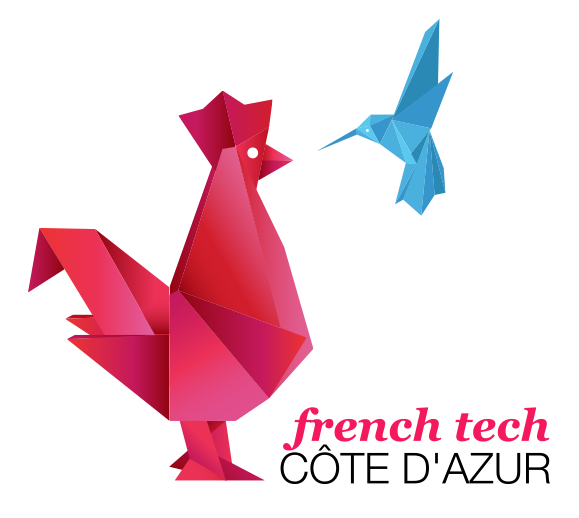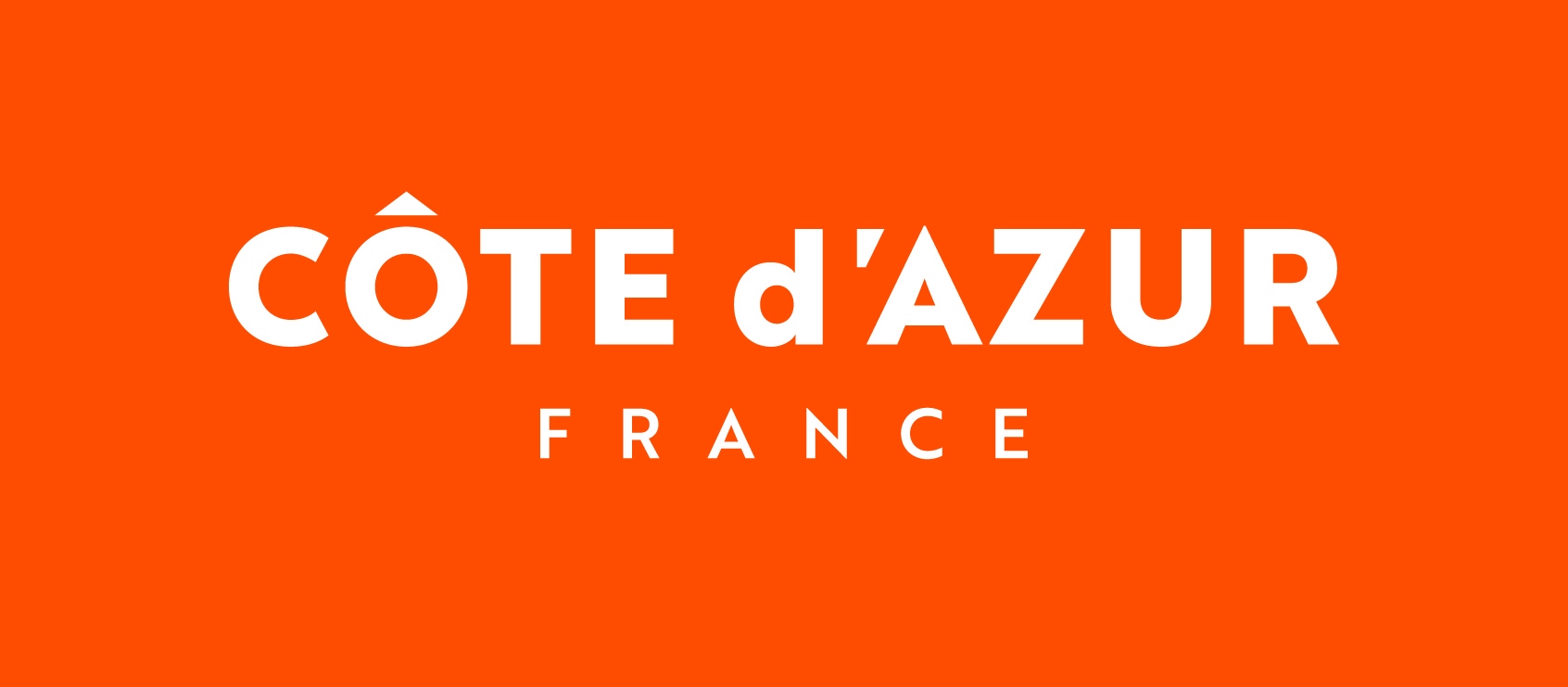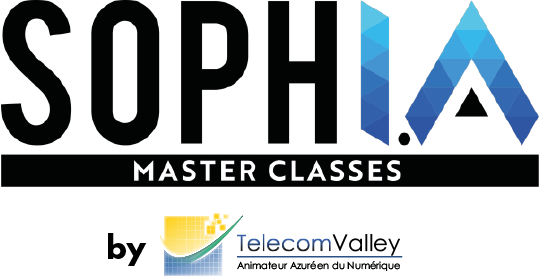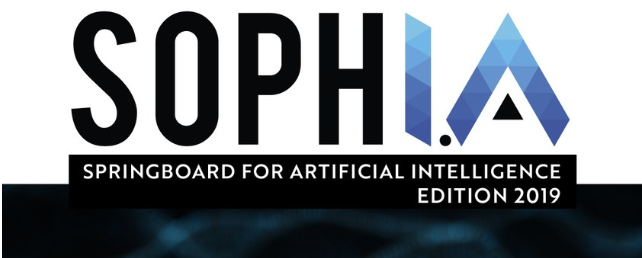
![]()
The second edition of SOPHI.A SUMMIT AI WEEK will take place in Sophia Antipolis, from November 19th to 23rd 2019. This week dedicated to Artificial Intelligence is co-organized by Université Côte d’Azur, Communauté d’Agglomération de Sophia Antipolis and Département des Alpes-Maritimes, with the support of Team Côte d’Azur and the Sophia Club Entreprises (news & registration).
Telecom Valley is organizing the Master Classes at the opening of the AI WEEK on Tuesday, November 19th at the SophiaTech Campus.
![]()
La deuxième édition du SOPHI.A SUMMIT AI WEEK aura lieu à Sophia Antipolis, du 19 au 23 Novembre 2019. Cette semaine dédiée à de l’Intelligence Artificielle est coorganisée par Université Côte d’Azur, la Communauté d’Agglomération de Sophia Antipolis et le Département des Alpes-Maritimes, avec le soutien de Team Côte d’Azur et du Sophia Club Entreprises (infos & inscriptions).
Telecom Valley organise les Master Classes en ouverture de la AI WEEK, le Mardi 19 novembre au Campus SophiaTech.
master classes programme
Tuesday November 19th 2019
10:00-12:30 AM / 2:00-4:30 pm
Université de Nice Sophia
Campus SophiaTech, Bâtiment Forum
400 route des Chappes 06410 Sophia Antipolis
![]()
2 sessions of 4 free Master Classes in parallel (2h30 each one), one in the morning (beginning at 10:00am) and one in the afternoon (beginning at 2:00pm).
The content of the 2 sessions is similar in the morning and the afternoon.
You can choose 1 topic in the morning and another in the afternoon from the following 4 topics :
![]()
Deux sessions de 4 Master Classes gratuites en parallèle, de 2h30 chacune, l’une le matin (début à 10h) et l’autre l’après-midi (début à 14h).
Le contenu des 2 sessions est similaire le matin & l’après-midi.
Vous pouvez choisir 1 sujet de Master Class le matin et choisir un autre sujet l’après-midi parmi les 4 sujets suivants :
10:00-12:30 AM
or/ou
2:00-4:30 PM
Modeling & tooling for non AI Experts
![]()
Vincent BERAUDIER, Team Lead for the Continuous Learning service
Philippe GREGOIRE, Partners Technical Enablement Europe – Data Science and IoT
Amélie HOCQUETTE, Program Director, Development, Decision Optimization
Jerome JOUBERT, Senior Offering Manager
SPEAKERS BIO
Vincent BERAUDIER :
Vincent is a data science modeling specialist with deep knowledge of Machine Learning model building and integration.
With 20 years of experience in Decision Optimization product development, Vincent is now focusing on the AI model lifecycle with IBM Watson Machine Learning.
Philippe GREGOIRE :
Philippe Gregoire is an I/T Specialist with the IBM EcoSystem Advocacy Hub Europe
After working in various technical fields (BPM, SOA, GIS, J2EE,…) in Tech Sales and Development Labs, over the past 3 years Philippe has been conducting technical enablement in the fields of Data Science and IoT for IBM Software Vendors and Cloud Service Providers partners, delivering workshops and project consulting across Europe.
Master Class available in
![]() /
/ ![]()
Abstract (ENG)
In this hands-on session you will learn how to combine several AI technologies to address an end-to-end scenario.
You will understand how machine learning, prescriptive AI and decision optimization can be streamlined to solve a real-life problem.
More importantly, you will understand that you don’t need to be an AI expert to be successful.
In this scenario, you will be working for a fictional telecom operator. Based on historical data, you will have to identify potential customers that are likely to cancel their subscription. For each one, you will determine the best offer that this customer cannot miss.
Finally, you will find the best course of action, and schedule personalized customer calls based on your operational constraints.
Prerequisites :
- During this masterclass, participants will build their own AI application in the Cloud, under the direction of the instructors. To this effect, they should bring their own laptop that will be connected to the Cloud using Wifi available locally in the classroom
- So as not to waste time during the MasterClass delivery, it is recommended that participants have an IBM Cloud account already setup. Users with an existing account should check that they still have up-to-date access and are able to log-in to the dashboard at http://cloud.ibm.com. Participants who do not can easily create one at no charge by following the instructions in this file.
Extrait (FR)
Au cours de cette session pratique, vous apprendrez à combiner plusieurs technologies d’intelligence artificielle pour traiter un scénario de bout en bout.
Vous comprendrez comment l’apprentissage automatique, l’IA normative et l’optimisation de décision peuvent être rationalisés pour résoudre un problème réel.
Plus important encore, vous comprendrez qu’il n’est pas nécessaire d’être un expert en IA pour réussir.
Dans ce scénario, vous travaillerez pour un opérateur de télécommunication fictif. Sur la base des données historiques, vous devrez identifier les clients potentiels susceptibles d’annuler leur abonnement. Pour chacun, vous déterminerez la meilleure offre que ce client ne peut pas manquer.
Enfin, vous trouverez le meilleur plan d’action et planifierez des appels client personnalisés en fonction de vos contraintes opérationnelles.
Pré-requis :
- Au cours de cette Master Class, les participants créeront leur propre application d’intelligence artificielle dans le cloud, sous la direction des instructeurs. À cet effet, ils doivent apporter leur propre ordinateur portable qui sera connecté au Cloud en utilisant le Wifi disponible localement dans la salle.
- Pour ne pas perdre de temps lors de la MasterClass, il est recommandé que les participants disposent déjà d’un compte IBM Cloud. Les utilisateurs ayant un compte existant doivent vérifier qu’ils disposent toujours d’un accès à jour et qu’ils peuvent se connecter au tableau de bord à l’adresse http://cloud.ibm.com. Les participants qui ne le peuvent pas peuvent facilement en créer un gratuitement en suivant les instructions de ce fichier .
10:00-12:30 AM
or/ou
2:00-4:30 PM
Wasabi project : Make music accessible to everybody
![]()
Michel BUFFA, Computer Engineering Teacher & Researcher
SPEAKER BIO
Michel Buffa is a professor/researcher at University Cote d’Azur, member of the WIMMICS research group, common to INRIA and to the I3S Laboratory (CNRS).
He specialized in Web and Semantics, contributed to the development the WebAudio research field, since he participated in all WebAudio Conferences, being part of each program committee between 2015 and 2018.
In addition, he actively works with the W3C WebAudio working group, has given extensive tutorials on WebAudio at several international conferences (e.g. Web Conference 2018), and has even written a MOOC module on WebAudio at edX.org, the MIT/Harvard online MOOC platform, which has had approximately 70,000 students to date. He is the national coordinator of the WASABI research project, with partners such as Deezer, IRCAM, Radio France.
The project uses Artificial Intelligence algorithms in multiple parts (semantic database of songs/artists, natural language analysis of song lyrics, separation of musical instruments and voice from stereo audio files, etc.)
Master Class available in
![]() /
/ ![]()
abstract (Eng)
Try to experiment by yourself the Wasabi Project with Michel BUFFA.
Bring your instrument and join this technological & musical master class !
> Teasing here
Prerequisites :
If you are a musician, you can test with guitar / keyboard or simply playing with online software.
If you are a web developer with basic knowledge of JavaScript you will be able to learn how to get started with the WebAudio API, you will also be able to test the separation of instruments from YouTube audio or video files with online examples.
Extrait (FR)
Tentez d’expérimenter par vous-même le projet Wasabi avec Michel BUFFA.
Munissez vous de votre instrument et rejoignez cette master class technologique & musicale !
> Teasing ici
Pré-requis :
Aucun à priori.
Si vous êtes musicien, vous pourrez tester avec guitare/clavier ou simplement en jouant avec les logiciels en ligne.
Si vous êtes développeur Web avec des connaissances de base en JavaScript vous pourrez apprendre comment démarrer avec l’API WebAudio, vous pourrez aussi tester la séparation d’instruments à partir de fichiers audio ou vidéos YouTube avec des exemples en ligne.
10:00-12:30 AM
or/ou
2:00-4:30 PM
Rasa Natural Language Processing in HR
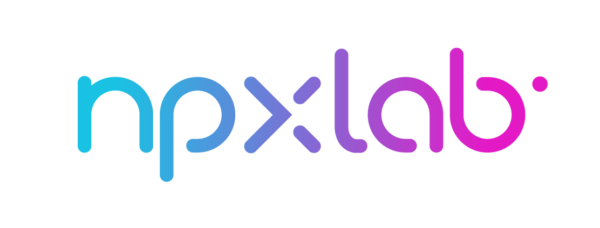
Raoul DO NASCIMENTO, CEO & Founder
Arij MELLITI
SPEAKER BIO
Raoul Do Nascimento and Arij Melliti are working together at NPXLAB to build innovative HR software including Artificial Intelligence. Both passionate about technologies and always keen on learning new methods and tools, they also favour knowledge sharing when possible – nothing will ever replace a face-to-face discussion between humans! They have a strong experience in developing cloud solutions and delivering great results. They use reinforcement learning algorithms and natural language processing in their Rheveo product and use Rasa on a daily basis.
Master Class available in
![]() /
/ ![]()
Abstract (ENG)
NPXLAB use natural language processing using Rasa in its Rheveo product (HR software market for mid size to major companies). We will introduce the HR context and tools used in the market with HR solutions and current trends. During the session we will demonstrate the use of Rasa with few examples. We will use an environment created beforehand and try a few use cases to better understand how to setup a bot in your company. At the end we will discuss the use of AI in the context of HR and recall few ethical principles we apply to ourselves and our customers.
Pre-requisites :
Knowledge / use of the Windows or Linux command Having already seen a little Python would be ideal We will use Docker to provide examples
Extrait (FR)
NPXLAB vous propose une Master class consacrée aux cas d’utilisation de l’IA dans le domaine des Ressources Humaines.
Nous utiliserons Rasa pour illustrer nos exemples et vous découvrirez cet outil d’analyse du langage naturel. Vous pourrez ainsi comprendre l’intérêt de ces solutions dans votre domaine et le positionnement des outils existants du marché.
Ensuite nous mettrons en place un environnement pour expérimenter par vous même le développement d’un bot.
L’éthique ne sera pas en reste car nous aborderons plusieurs principes indispensables à la mise en place de ces outils et aux nouveaux usages associés – via notre manifeste IA.
Pré-requis :
Connaissances / usage de la commande Windows ou Linux
Avoir déjà vu un peu de Python serait l’idéal
On utilisera Docker pour fournir les exemples
10:00-12:30 AM
or/ou
2:00-4:30 PM
Small data AI on embedded platforms
![]()
Carlo FANARA, Lead Data Scientist

Marco LORENZI, Research Scientist
SPEAKER BIO
Carlo FANARA
After a career in IT, Carlo spent 20+ years in physics (MSc in Nuclear Physics, PhD in Plasma Physics). After several years in academia, He moved to industry, working in R&D. In Data Science since 2013, he joined MyDataModels in 2019 where he coordinates the Data Science and research activities.
Master Class available in
![]() /
/ ![]()
ABSTRACT (ENG)
Since its foundation MyDataModels (MDM), has been using small data, highlighting how these ‘democratizes’ the field, allowing Domain Experts and professionals to access machine learning results in an unprecedented way.
Machine Learning (ML) models can be generated in several ways, including artificial neural network (ANN) and deep learning (DL), but also – like in the case of MDM – using Genetic Algorithms (GA).
Whilst the latter may suffer in terms of execution time, ways to define and assess early convergence can be found. This is one of the major efforts currently undertaken at MDM; and it is worth, because MDM GA’s provide mathematical formulae which include the variables from the original dataset. Thus, models become explainable.
A model trained on a machine can be loaded on an edge device, where it is used to infer novel results. In this Masterclass, MDM will present a few demos of inference achieved by the models on different architectures. After an introduction on the subject by our partners at INRIA, models will be first generated on data provided by the users; and then applied on selected consumer platforms (Raspberry Pi, Arduino).
MDM will provide the entire development chain: first a demo of the model generation (training) onto a laptop computer, using data brought by the participants. As we focus on ‘small data’, we request the participants not to exceed 1MB size (in csv format). Thereafter, the participants will be able to follow all the steps of the creation, uploading and execution of the trained model, and able to appreciate the prediction capability on a real device, all within the time of the demonstration.
EXTRAIT (FR)
Depuis sa création, MyDataModels (MDM) utilise de petites données, soulignant comment celles-ci «démocratisent» le domaine, permettant ainsi aux experts et aux professionnels du domaine d’accéder aux résultats de l’apprentissage automatique d’une manière sans précédent.
Les modèles d’apprentissage automatique (ML) peuvent être générés de plusieurs manières, y compris par un réseau de neurones artificiels (ANN) et un apprentissage approfondi (DL), mais aussi – comme dans le cas du MDM – utilisant des algorithmes génétiques (GA).
Bien que ces derniers puissent souffrir en termes de temps d’exécution, il est possible de trouver des moyens de définir et d’évaluer une convergence précoce. C’est l’un des efforts majeurs actuellement entrepris par MDM; Et cela vaut la peine, car les MDM GA fournissent des formules mathématiques qui incluent les variables de l’ensemble de données original. Ainsi, les modèles deviennent explicables.
Un modèle formé sur une machine peut être chargé sur un périphérique périphérique, où il est utilisé pour déduire de nouveaux résultats. Dans cette Masterclass, MDM présentera quelques démonstrations d’inférences réalisées par les modèles sur différentes architectures. Après une introduction sur le sujet par nos partenaires de l’INRIA, des modèles seront d’abord générés à partir de données fournies par les utilisateurs; puis appliqué sur certaines plateformes grand public (Raspberry Pi, Arduino).
MDM fournira l’intégralité de la chaîne de développement: premièrement, une démonstration de la génération de modèles (formation) sur un ordinateur portable, en utilisant les données fournies par les participants. Alors que nous nous concentrons sur les «petites données», nous demandons aux participants de ne pas dépasser la taille de 1 Mo (au format CSV). Par la suite, les participants seront en mesure de suivre toutes les étapes de la création, du téléchargement et de l’exécution du modèle formé et d’apprécier la capacité de prévision sur un appareil réel, le tout dans les délais prévus pour la démonstration.
Places limited.
Master Classes by Telecom Valley are organized with the support of
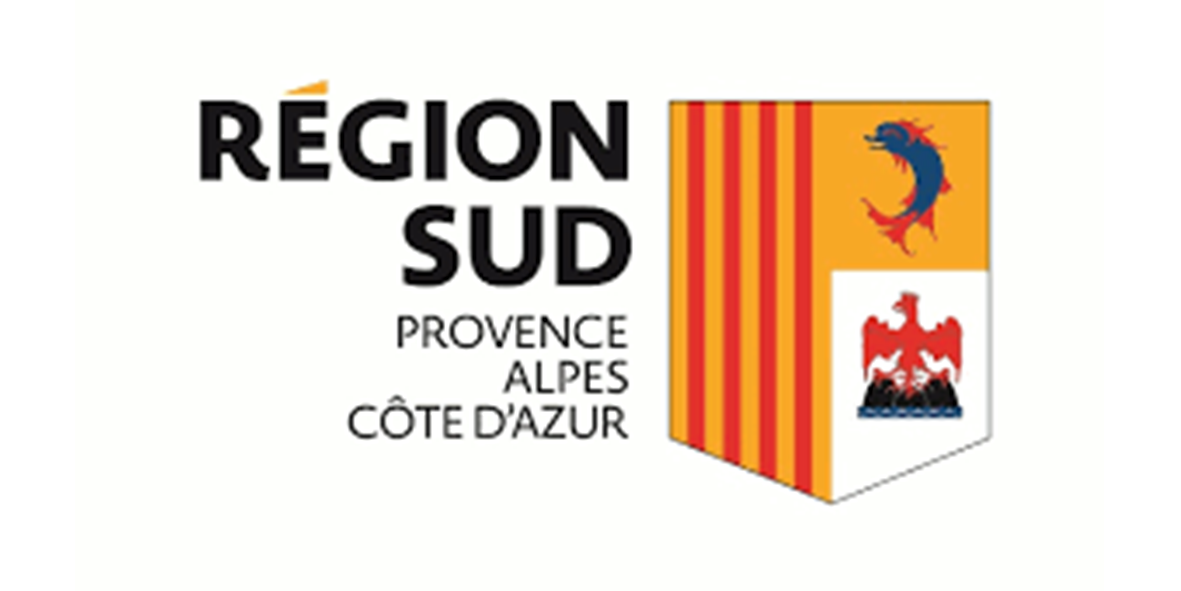

as a part of

